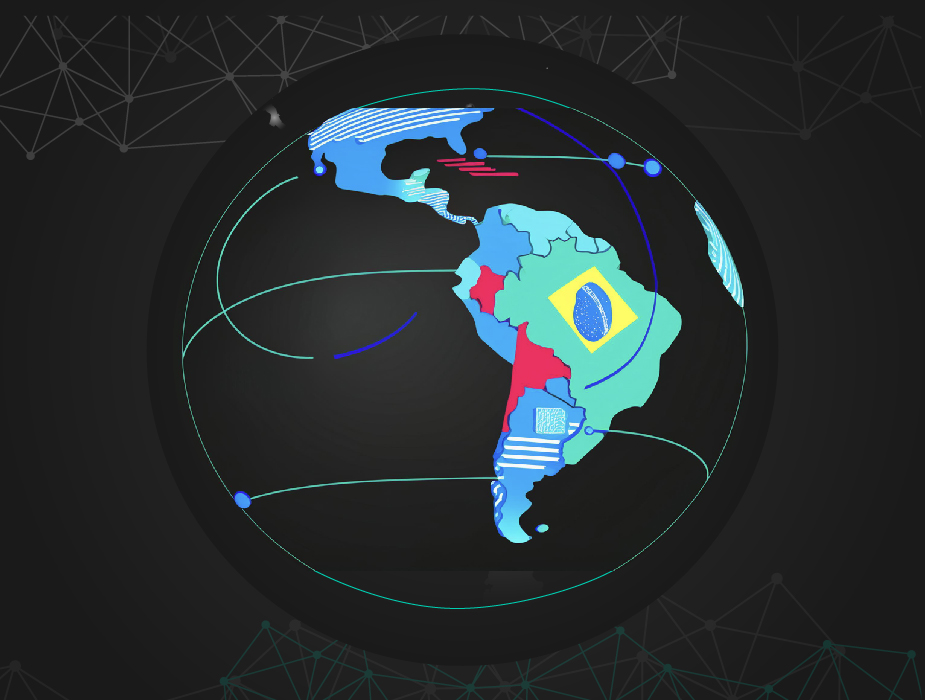Join our newsletter


Expanding business operations into Latin America can offer tremendous growth opportunities, but navigating the region's complex legal landscape is crucial for success. Each country in Latin America has its own set of regulations and laws that impact various aspects of business, including taxes, labor, and foreign investment.
This comprehensive guide provides a detailed breakdown of the key regulations businesses must understand when operating in specific Latin American countries, with a focus on tax regulations in Brazil, Mexico, and Argentina, labor law considerations, and the procedures for establishing a legal entity in different countries.
Comparative Analysis of Tax Regulations: Brazil, Mexico, and Argentina

- Corporate Tax: Brazil's corporate tax system is complex and includes multiple layers. The primary corporate income tax is the Imposto de Renda das Pessoas Jurídicas (IRPJ), which is levied at a rate of 15% on net income, with an additional 10% surtax on income exceeding a certain threshold. Companies are also subject to the Social Contribution on Net Profit (CSLL) at a rate of 9%.
- Indirect Taxes: Brazil imposes several indirect taxes, including the Goods and Services Tax (ICMS), the Tax on Industrialized Products (IPI), and the Contribution for Intervention in the Economic Domain (CIDE). The ICMS rate varies by state and can be as high as 18% to 25%.
- Other Taxes: Companies may face other taxes such as the Social Integration Program (PIS) and the Contribution to Social Security Financing (COFINS), which are levied on gross revenue.
- Corporate Tax: In Mexico, the corporate income tax rate is set at 30% on net income. This rate is relatively straightforward compared to Brazil’s multi-layered tax system.
- Indirect Taxes: Mexico’s Value Added Tax (VAT), known as IVA, is applied at a standard rate of 16% on most goods and services. There are also reduced rates and exemptions for specific sectors.
- Other Taxes: Businesses may be subject to additional taxes such as the Special Tax on Production and Services (IEPS), which applies to certain goods and services, including alcohol and tobacco.
- Corporate Tax: Argentina has a progressive corporate income tax system. The rate is 25% for companies with net taxable income up to ARS 5 million, and 30% for income exceeding this threshold.
- Indirect Taxes: The main indirect tax in Argentina is the Value Added Tax (VAT), set at 21% with reduced rates for certain goods and services. Additionally, provinces levy their taxes on gross revenues, known as the Ingresos Brutos tax.
- Other Taxes: Argentina also imposes a range of other taxes, including the Personal Assets Tax and the Stamp Tax, which varies by province.
Labor laws in Latin America are generally characterized by strong employee protections, which can vary significantly across countries:
- Employment Contracts: Most countries in Latin America require written employment contracts that outline the terms and conditions of employment. These contracts should include details about job roles, salaries, and benefits.
- Minimum Wage: Each country sets its minimum wage standards. For example, Brazil, Mexico, and Argentina all have legally mandated minimum wages, which can vary by region and sector.
- Working Hours and Overtime: Standard working hours and overtime regulations differ. In Brazil and Argentina, the standard workweek is 44 hours, with overtime pay required for hours worked beyond this limit. In Mexico, the standard is 48 hours per week, with specific regulations for overtime.
- Employee Benefits: Employees in Latin America are often entitled to various benefits, including paid vacation, sick leave, and maternity/paternity leave. Additionally, some countries require employers to contribute to social security and pension funds.
- Termination of Employment: Termination regulations are strict, with requirements for notice periods and severance payments. In Argentina, for instance, employees are generally entitled to severance pay based on their length of service.
The procedures for setting up a legal entity in Latin America involve several common steps, but specifics can vary by country:
1. Brazil
- Business Registration: To establish a business in Brazil, you need to register with the Board of Trade (Junta Comercial) and obtain a National Register of Legal Entities (CNPJ) from the Federal Revenue Service.
- Legal Requirements: Businesses must have a local address and a local representative. Additionally, you’ll need to comply with local regulations related to business operations, such as environmental and labor laws.
- Timeframe: The process can be time-consuming, often taking several months to complete all necessary registrations and approvals.
2. México
- Business Registration: In Mexico, the first step is to register the business name with the Ministry of Economy and obtain a Tax Identification Number (RFC) from the Tax Administration Service (SAT).
- Legal Structure: Choose the appropriate legal structure for your business, such as a Sociedad Anónima (SA) or Sociedad de Responsabilidad Limitada (SRL), and draft the necessary articles of incorporation.
- Timeframe: Establishing a business in Mexico is relatively straightforward, with registration processes typically taking a few weeks.
3. Argentina
- Business Registration: Register the business with the Public Registry of Commerce and obtain a Federal Tax Identification Number (CUIT) from the Federal Administration of Public Revenue (AFIP).
- Legal Requirements: Argentina requires a minimum capital investment for certain types of companies and compliance with local regulations concerning labor, taxes, and environmental standards.
- Timeframe: Setting up a business in Argentina can be lengthy, often requiring several months to complete all registrations and obtain necessary permits.
Understanding the legal landscape in Latin America is crucial for American companies seeking to establish or expand their presence in the region.
By familiarizing yourself with the tax regulations, labor laws, and procedures for setting up a legal entity in countries like Brazil, Mexico, and Argentina, you can navigate the complexities of doing business in Latin America more effectively.
Tailoring your approach to meet local legal requirements and cultural expectations will help ensure a successful and compliant business operation in this diverse and dynamic region.